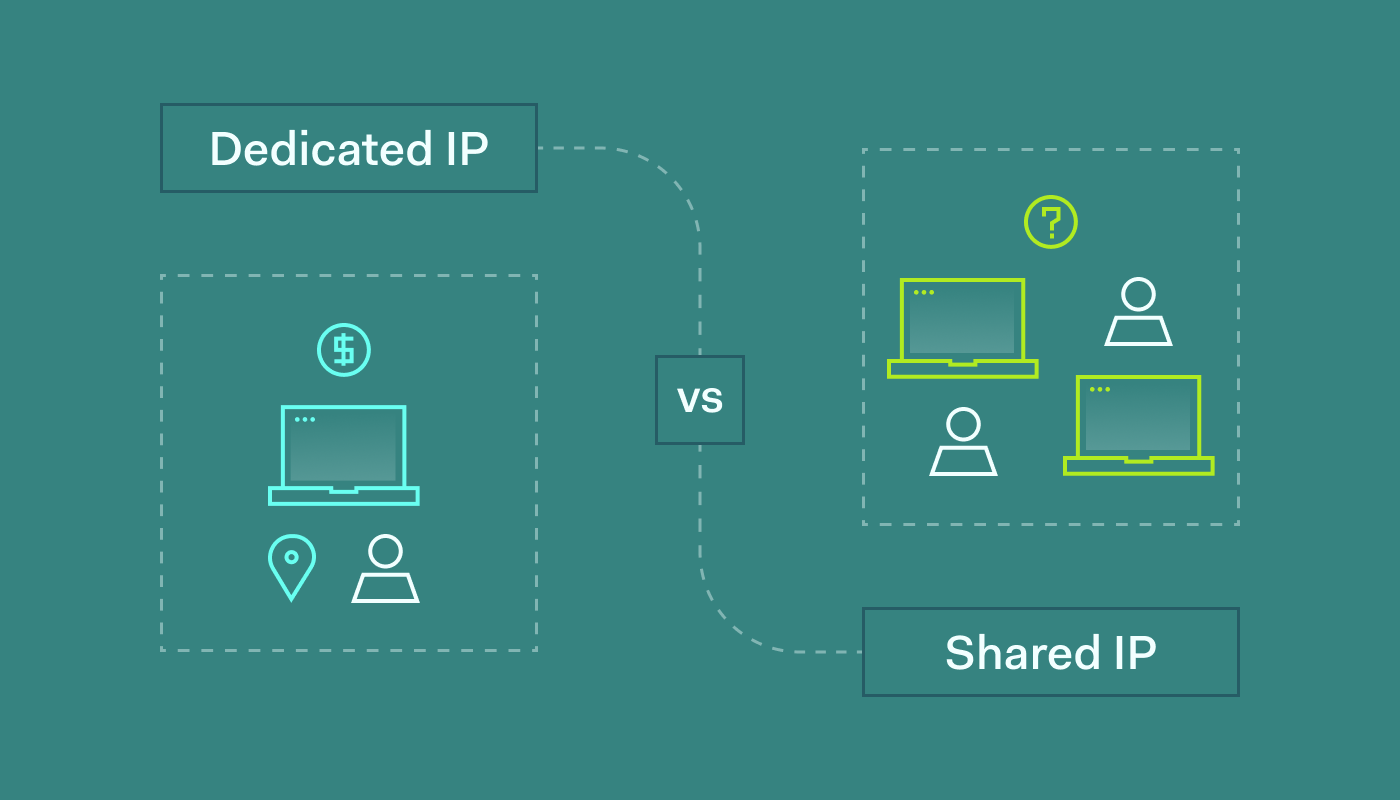
THE DIFFERENCE BETWEEN DEDICATED IPs AND SHARED IPs
IP ADDRESSES
THE DIFFERENCE BETWEEN DEDICATED IPs AND SHARED IPs
DEDICATED IPs AND SHARED IPs – Here’s a brief explanation of the difference between the two:

DEDICATED IPs AND SHARED IPs – A shared IP is used for multiple sites. It can host all websites on a particular server.
On the other hand, a DEDICATED IPs AND SHARED IPs is specific to a domain.
But before we go into more details, let us understand the rudiments.
IP is abbreviation for Internet Protocol, and it is a DEDICATED IPs AND SHARED IPs assigned to each computer that is connected to a network. It works as an identifier by providing location of the computer in a given network.
IP addresses are an integral part of any business, and unsurprisingly we are witnessing all sizes of companies consuming them faster with myriad applications and devices.
An IP address being a critical resource needs to be managed prudently. This is because nearly all networked applications including email and web connectivity rely on IP and requires an address to be assigned. This task is becoming even more challenging with burgeoning mobile networks increasing the need for IP address assignment.
We can get an idea of the importance of an IP address by knowing that:
- It enables a request for a message to be delivered to the right destination.
- By facilitating the receiving device to know where it originated, it directs a response, if required to the proper target.
But is it in way beneficial to have a unique IP address?
This question was always debated by many experts, with most of them having varying opinions.
The consensus however was, a unique IP address is beneficial.
Here are a few reasons why they say so.
- It allows access to your website whenever you need to do so.If you want to know how your website is likely to look before pointing a domain name to it, a unique IP address provides access to the server without altering DNS settings.
- It helps in enhancing email sender’s reputationIf your website runs over a shared IP address, you may run into fickle situations. For example, if another user with the same IP address get’s blacklisted for spamming, your email service may get affected as well. When you use a unique IP address, your service is isolated from other entities.
- It is good for any business environmentIf you are into ecommerce or e-retailing, a unique IP address with a SSL certificate is the way to go. Such a set up will give more confidence to your customers when they buy merchandise from you.This does not mean a shared IP is all drawbacks. In a shared hosting environment hundreds of sites reside on the same server, and therefore have a common IP address. Such a setup is widely used by many businesses as they feel it suits them.
Unique IPs (Dedicated IPs):
- Definition: A unique IP address is assigned exclusively to a single hosting account or website.
- Isolation: Websites on different unique IPs are completely isolated from each other in terms of their IP addresses.
- Advantages:
- SSL Certificates: Often required for websites that need to use SSL (Secure Socket Layer) for secure data transmission. Some older browsers do not support Server Name Indication (SNI), which allows multiple SSL certificates on a single IP address. Therefore, for compatibility, unique IPs may be necessary.
- Email Reputation: Having a dedicated IP for email services can help maintain a good sender reputation, reducing the risk of emails being marked as spam.
- Disadvantages:
- Cost: Dedicated IPs may come at an additional cost compared to shared hosting.
Limited Resources: If you have a single IP address, you may need additional configurations for load balancing and failover, as all traffic is directed to that specific IP.
Shared IPs:
-
- Definition: Multiple websites share the same IP address on a server.
- Isolation: Websites on shared IPs are not isolated based on IP addresses. They coexist on the same server and share the server’s resources.
- Advantages:
- Cost-Effective: Shared hosting is generally more affordable as the cost is distributed among multiple users.
- Ease of Setup: Shared hosting is often simpler to set up, making it suitable for individuals or small businesses with basic hosting needs.
- Disadvantages:
- SSL Limitations: With shared hosting, if you want to use SSL, you typically have to use a shared SSL certificate provided by the hosting provider, or use technologies like SNI (Server Name Indication), which may not be supported by all clients.
- Resource Sharing: Resources (CPU, RAM, bandwidth) are shared among multiple users, which can lead to performance issues if one website experiences a surge in traffic or resource usage.
In summary, the choice between unique IPs and shared IPs depends on your specific hosting requirements. If you need more control, security, or specific features like a dedicated SSL certificate, a unique IP might be preferable. If cost is a primary concern and you have basic hosting needs, shared hosting with a shared IP may be a suitable option.

